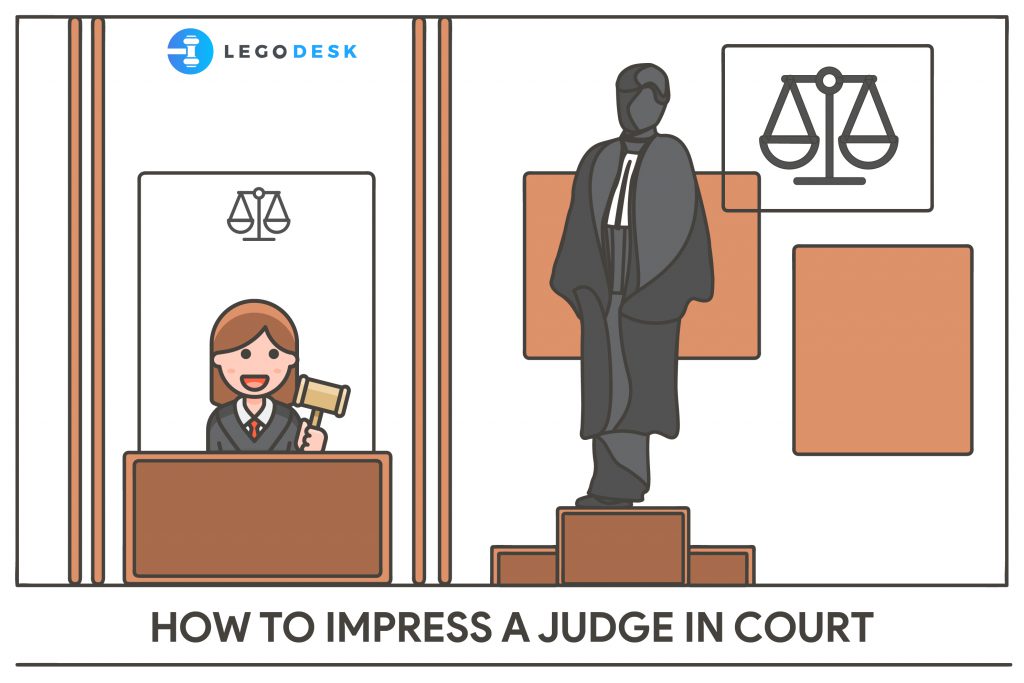How to Impress a Judge in Court

A courtroom is a place of rituals and formalities. There are established rules of behavior, since times immemorial, which have to be followed by everyone who enters it. They are unwritten and unspoken yet signify an integral part of the overall make-up of the courtroom.
The judge who presides the court is the primary authority in the room. In front of the judge, everyone has to know and observe basic courtroom etiquette. This signals to the judge that one respects the legal process and the judge’s role as the representative of the Constitution and Rule of Law. It also shows him that you are prepared and very serious about presenting your case to the utmost sincerity.
Read Also – First Female Judge in India – Story of Fathima Beevi
You can also watch the video here.
Do’s in a Courtroom
- Be clean. It is important to wear neat and clean clothes when you are going to court. Business casual is the preferred form of attire. In India, lawyers are asked to wear black and white only. Although, in foreign countries, other colors that are not too bright are also allowed. This is applied uniformly to both males and females. Apart from attire, it is imperative to check that hair is proper, and shoes are clean. Further, phones should be switched off as soon as one enters the courtroom. If these tips are followed, they are bound to impress a judge.
Read Also – Judge vs Magistrate: Major factors that differentiate them - Stand when the judge enters the room. Do stand when the judge enters the room, and while you are presenting your case to him/her. It is looked down upon if the lawyer is not standing when his/her case is in motion.
- Address the judge as ‘Your Honor.’ This practice has been in our courtrooms for centuries and is still a sign of respect when done. As the judge is the gatekeeper of the law, and one is supposed to honor the law, it is impressive if the lawyer addresses the judge as ‘your honor.’ This is only restricted to a judge and does not extend to any court clerk or other non-judge officials.
- Be audible. Stenographers are appointed so as to record each and every argument presented in the court. For this reason, it is important for the lawyers to be audible at all times. You should not mumble or speak amongst yourselves. Such practices are looked down upon. Be clear in a way that the judge and record keepers can hear you at all times.
Read Also – How Judges of Indian Court are appointed? - Use proper language and speak in complete sentences. You should avoid slang, cursing, accusations, sarcasm, eye-rolling, or making faces. These gestures are termed disrespectful behavior. Rude words should not be used to address anyone, especially your opposition and the judge.
- Prepare before every hearing. Preparation is the key to success. It is imperative to prepare before every hearing. You should know your facts, your opening arguments. It doesn’t look well on the lawyer if s/he is reading from a paper. It is good to assume that the judge does not know anything about the case and then give him/her an overall picture. A good way to start is to prepare your opening sentences and then work with the flow.
- Be polite and respectful. Always keep your calm. Answer only the questions that are being asked. Try not to steer from the argument. If you do not know the answer to a question, either ask for some time to prepare by referring to your notes or admit truthfully that you do not know the answer.
Read Also – What are the kinds of legal services that attorneys provide? - Be punctual. Show up on time and in the right place. It is advisable to keep a good margin of time between your home and the courtroom and to take into account the traffic. If you do not know your way, always ask for help to avoid being late.
- Body language should be taken care of. Unnecessary moving around should be avoided. Find your spot in the courtroom and don’t move from it unless it is absolutely necessary. Further, move your hands gracefully. But do not initiate drama.
Don’ts in a Courtroom
- Don’t interrupt the judge when s/he is speaking. Talking over a judge is a sign of deep disrespect not just for the judge, but also for the law. Even when the judge is mistaken, or his/her facts are incorrect, wait for him/her to finish speaking before you seek for permission to speak. Furthermore, being argumentative should also be avoided. It is possible that you do not agree with the judge’s views. Always look for a respectful way to put forth yours without completely disregarding his’.
- Don’t hand papers directly to the judge. There exists a court clerk for a reason. If you want to give any written proof to the judge, first give it to the clerk who will then hand it over to the judge.
Read Also – Legal Analytics: Definition & Advantage
Conclusion
First impressions last. Therefore, it should be noted that if you want to make a lasting impression on the judge, you should keep your demeanor in check all the time. Your behavior can significantly impact the outcome of the case – and tilt it either in your favor or against you. Considering the fact that the client’s fate is in your hands, you should always keep the checkpoints mentioned above in mind before you enter any courtroom.
Read Also – 10 Questions to Ask Your Potential Lawyer